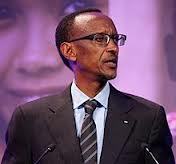
Your Excellency, Chairperson of the African Union;
Excellences dear colleagues;
The debate we are having on Mali is of particular importance. We are dealing with an issue that is of concern to every African country, to every African citizen.
The situation in the northern part of Mali threatens not only the security and stability of the country, but also that of the entire region and beyond. The principles involved, in particular the respect for the unity and territorial integrity of Mali, are of paramount importance to the entire continent. Africa cannot, and should not, fold its arms when terrorist and criminal groups are occupying over half the territory of a Member State, carrying out the most atrocious crimes against innocent civilians and destroying monuments that are of great significance to Africa’s heritage and civilization.
Mali is one of the founding members of the OAU. Its commitment to Pan-Africanism is well-known. In half a century of independence, this commitment never wavered. Modibo Keita, the first Malian President, was one of the most engaged African leaders when it came to the liberation of the continent and the promotion of its unity. President Alpha Omar Konare, who chaired the AU Commission, is a deeply dedicated African. I have no doubt that President Dioncounda Traore is determined to preserve and strengthen Mali’s invaluable contribution to the advancement of our continent.
As we prepare to celebrate the Golden Jubilee of the OAU/AU, we ought to extend to Mali our total solidarity and unreserved support. Solidarity and collective action were the values that made it possible to liberate Africa from the yoke of colonialism and racial domination. These very values are needed today to enable us address the daunting challenges facing us in Mali.
What are those challenges? It is about creating conditions for the speedy deployment of the African-led International Support Mission in Mali (AFISMA) and sustaining its operations. Ideally, AFISMA should have been in Mali much earlier. Regrettably, this was not possible. And, when the terrorist and criminal groups launched an attack on 10 January, it was thanks to the prompt intervention by France that the situation was contained.
AFISMA is needed more than ever before to help the Malian army complete the liberation of the northern part of the country. And, in so doing, the Mission will assist in creating conducive conditions for a genuine political process that would see Malians of all walks of life sit together to develop a consensus on what they need to do collectively to sustain peace, ensure security and promote unity and reconciliation in their country.
I would like, at this point, to put on record Rwanda’s deep appreciation of the efforts of ECOWAS, the “core countries”, and the AU, as well as the support provided by our partners. Rwanda is also deeply appreciative of the steps taken by a number of our Member States both from the ECOWAS region and beyond to commit their sons and daughters for the military liberation operation in Mali.
As Africans, we need to do more. And doing more today is to significantly contribute to the funding and logistical requirements of AFISMA, as well as of the Malian Defense and Security Forces. True, our means are limited, but surely not our willingness and commitment to our continent and to the survival of every single Member State of our Union.
In this respect, I want to move a motion for this Summit to decide, now, that part of the funding for AFISMA and the Malian Defense and Security Forces will be borne by the AU as an organization, using arrear contributions, the Peace Fund and assessed contributions. The Commission will shortly circulate a draft Solemn Declaration, which while reiterating Africa’s resolve to lead and own the historic developments at work in Mali, contains our decision to make immediately available an amount of 50 million US Dollars for both AFISMA and the Malian Defense and Security Forces.
The people of Mali and indeed the people of Africa are looking at us. They are desperate of gestures and concrete acts that show that Africa can rise to the challenges. They are hungry of decisions that highlight our sense of pride and dignity. They are yearning for a Union that means what it says when it comes to solidarity and collective responsibility. This Summit cannot but live up to those expectations.
Few years ago, Comoros was seeking our help to restore its authority over the island of Anjouan. We decided at an AU Summit in 2008 to mount an African force to provide the requested assistance. Sudan and Tanzania provided the troops, while other African countries contributed technical and financial support. We successfully carried out the operation, in spite of our limited means. Darfur in 2004 and Somalia since 2007, when Uganda and Burundi stepped in, are other examples of successful African endeavors, when odds seemed to be against us. I am citing these examples to highlight that nothing is beyond the capability of this continent, when we muster the political will.
Today is one of such situations where Africa has to muster the political will and mobilize the requisite resources.
To all of you, dear colleagues, brothers and sisters, committed to the well-being of our continent and to that of Mali in particular, I make an appeal for us to endorse right now the solemn declaration on Mali. As a non-permanent member of the Security Council, Rwanda would like to build on such a decision to push forward our request for a UN support package funded through UN-assessed contributions.
In its hour of need, Mali, which displayed such commitment to the ideals of our Union, is entitled to count on our solidarity and support.
I thank you.
 Menu
Menu
 Rwanda: Intervention du président Paul Kagame sur le Mali
Rwanda: Intervention du président Paul Kagame sur le Mali
















